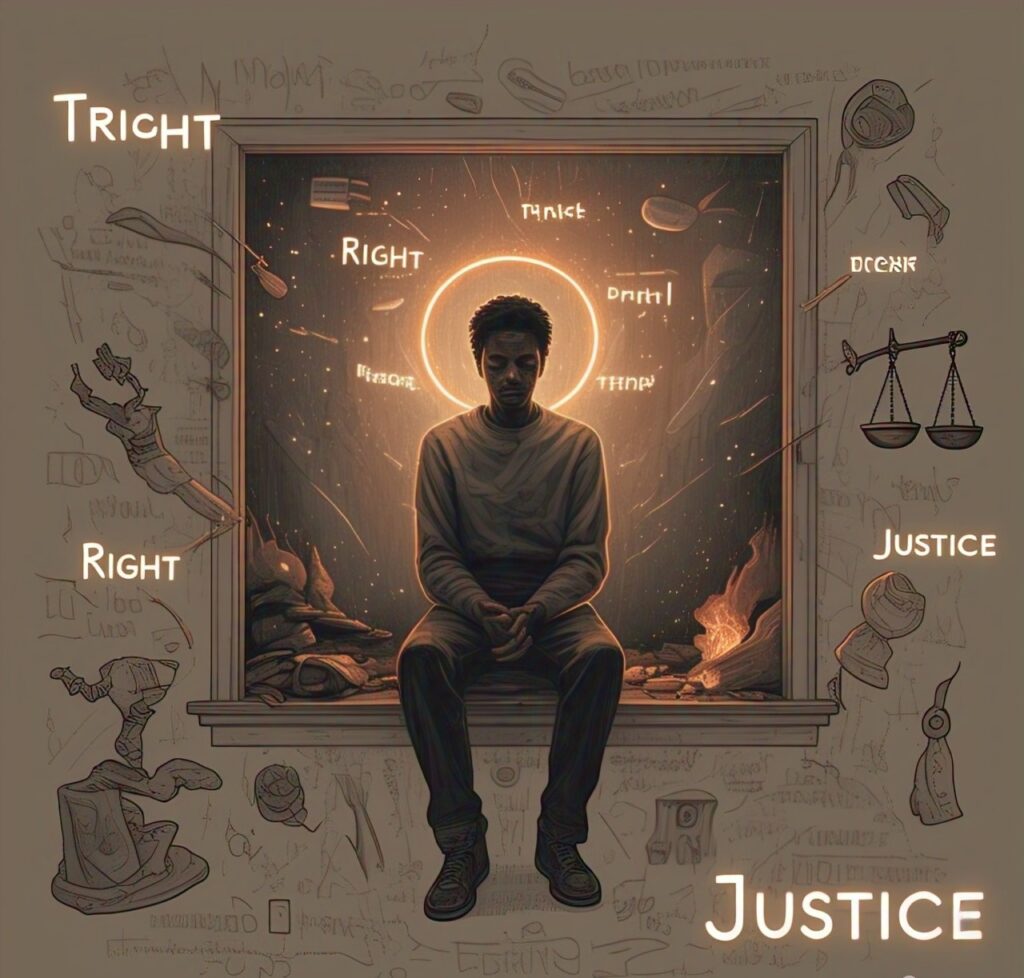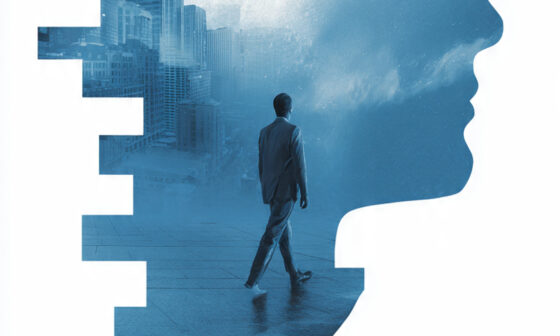There is a kind of sin we do not talk about enough; it is not loud, and it does not come with headlines. Often it feels passive, almost harmless, yet it quietly erases and kills our integrity and moral clarity. This is what James 4:17 brings it into sharp focus:
So whoever knows the right thing to do and fails to do it, for him it is sin.
James 4:17 ESV
This verse is not about committing obvious wrongs, not at all, and I am not saying it is not obvious but some times if not most times, it can seem subtle, and it is about failing to act when you know you should: It is the sin of silence when someone needs defending; the sin of comfort when sacrifice is required. The sin of delay when action is urgent.
Most of us want to be good people and so we avoid lies, violence, and theft, but how often do we measure our goodness by what we did NOT do, rather than what we SHOULD HAVE DONE? And James reminds us that passivity is not neutral; it is, at times, disobedience in disguise, injustice and very very wrong.
So today’s article is an invitation to live with courageous conviction, where our beliefs and our actions walk hand in hand.
Knowing is NOT Enough: The Moral Weight of Inaction
Obviously in today’s time and space of endless information, from Podcasts, sermons, devotionals, mentors, friends and family, and social media posts, they all flood our minds with truth, yes truth, even though they are more lies circulating than truth. But knowing the truth is not the same as living it, and James 4:17 does not excuse us because we meant to do right or because we understood what was right. It holds us accountable for what we knew to be right and did not act.

Even though not knowing and ignorance can be a sin in many cases; the sin here, in Jame 4:17, is not ignorance, but inaction.
- It is the friend who never checks in, even when they know you are hurting.
- It is the employee who notices the unethical behavior but stays silent.
- It is the believer who senses God prompting them to give, serve, speak, or intervene, but shrinks back instead.
I know many of us like to tell ourselves that doing nothing is safe; that it is a neutral ground, but again, James tells us plainly: There is no neutrality when you know what is right and do NOT do it.
- Silence can endorse injustice.
- Delay can destroy opportunity.
- And indifference can become complicity.
What we are reminded of here is that moral knowledge carries the weight of responsibility. It demands movement! Knowing what is right means you now have a burden, whether you like to acknowledge or not. It means you have been entrusted with truth, and that truth is supposed to drive action, otherwise, it becomes dead weight on our conscience.
So if you know the right thing, do it! Speak up! Step forward! Move! Because knowing is not and has never enough!
It is a seductive lie most people too often than not, tell themselves: If I do not look at it, if I act like I did not see it, I am not responsible for it. If we can keep our eyes shut, then our hands will be clean, and our hearts untouched, and we can go on with life guilt-free, but deep down, we know better, at least for the most of us. To deliberately ignore what is wrong is to quietly and other times openly accept it. In other words, to stay silent in the face of danger, injustice, or corruption is to participate in it.
And another thing is this; this lie is not new. Following the Daily Stoic podcast by Ryan Holiday, in Shakespeare’s Richard III, the character Brackenbury receives a clear order that will result in the murder of an innocent man, and what was his excuse? “I will not reason what is meant hereby, because I will be guiltless from the meaning.” But history and morality do not accept that kind of denial, and according to Ryan Holiday, neither does Stoicism.
Continue Reading: Closing Your Eyes Is Not An Excuse
The Silent Sins We Justify: Passivity is Complicity
It is easy to spot the sin in active wrongdoing, like lying, stealing, hurting others, these are visible and tangible, but again my dearest reader, James 4:17 shines a bright light on a more subtle and socially acceptable sin: Doing nothing when you should have done something.
We justify our passivity in so many ways:
- It is not my business.
- Someone else will take care of it.
- I do not want to get involved.
- What difference would I even make?
But we forget that or for some they do not when we withhold good, when we see a wrong and look away, when we have the power to speak up and stay silent, when we have the resources to help and hold them back, our inaction in itself has become its own form of harm.
Injustice thrives not only where evil acts, but where good people stay quiet.
- It is the neighbor we did not help.
- The encouragement we did not give.
- The injustice we did not name.
- The truth we did not stand for.
- The apology we did not give.
In every case, knowing what is right and choosing not to do it puts us on the wrong side of responsibility. Aagin! Again! And Again! Passivity is not neutrality; it is complicity!
The call of James 4:17 is not only to avoid sin, to do one better, to actively participate in the good, to be an instrument of righteousness in a world filled with excuses.
Many of us in one way or another are adamant about being a voice for what’s right from a religious standpoint or a fairness/justice standpoint. In my conversations with friends and acquaintances within my social circle over the last month, I’ve concluded that a large percentage of them prefer to go along with the flow and turn off what they perceive to be “wrong” that they encounter, rather than standing for the truth regardless of how they feel.
and you will know the truth, and the truth will make you free. – John 8:32
Can you really say you know the truth; If you can’t stand up for it?
And can you really say you are free; If you can’t stand up for knowing the truth?
Continue Reading: Standing For The Truth Regardless Of How You Feel
Living What You Know: Integrity Over Convenience
Like I have said over and over and over again, throughout this article, at the heart of James 4:17 is not just about knowledge; it is also very very much about responsibility: It is the weight of what we know to be right, pressing against our comfort, calling us to act even when it is costly, inconvenient, or countercultural.
Doing what is right maybe does not always feel good, I think. In fact, it often demands courage, sacrifice, and going against society’s norms sometimes.
- It means telling the truth even when silence feels easier.
- It means giving when you would rather keep.
- It means standing alone sometimes, misunderstood or even opposed, simply because your conscience will NOT let you do otherwise.
But that Is the mark of integrity: Being the same person in the dark as you are in the light. It is not about perfection; it is very very much about alignment. Aligning what you believe with what you choose. Aligning what you know with what you do.
You may not know everything; you may not have all the answers, but you are accountable for what you do know and for how you live in response to it.
James 4:17 is not just a warning; it is a call to a higher standard. A daily challenge to live boldly, humbly, and righteously, not someday, but today! Not when it is convenient, but when it matters most, and THAT IS ALL THE TIME.
Read Also: The Weight of My Own Words: How I Fight To Live What I Preach
Read Also: Justice: It Is About What You Do and Don’t Do
Read Also: The Most Powerful and Underrated Force in the World
Conclusion
We have been given a clear mandate: Knowing what is right and then failing to act is, in itself, sin. And I hope today’s article challenges us to examine not only our misdeeds but very very much also our quiet, everyday inactions that allow injustice to persist and grow. It is a call to live with integrity, a call to align our actions with our understanding of what is right.
Every day, we face choices that test our moral resolve, be it the decision to speak up against a small injustice or to extend kindness when it is easier to remain silent, our actions or lack of action define our character. The silent sins of inaction can weigh as heavily on our conscience as any wrong deed.
So let us choose to live what we know! Let us prioritize integrity over convenience, and let every act, even the smallest one be a testament to our commitment to doing what is right. For when we actively engage in the good, we not only honor our own conscience but also make the world a better place.
So, take up the challenge. Embrace accountability. And let your actions reflect the truth you hold in your heart—today and every day.





